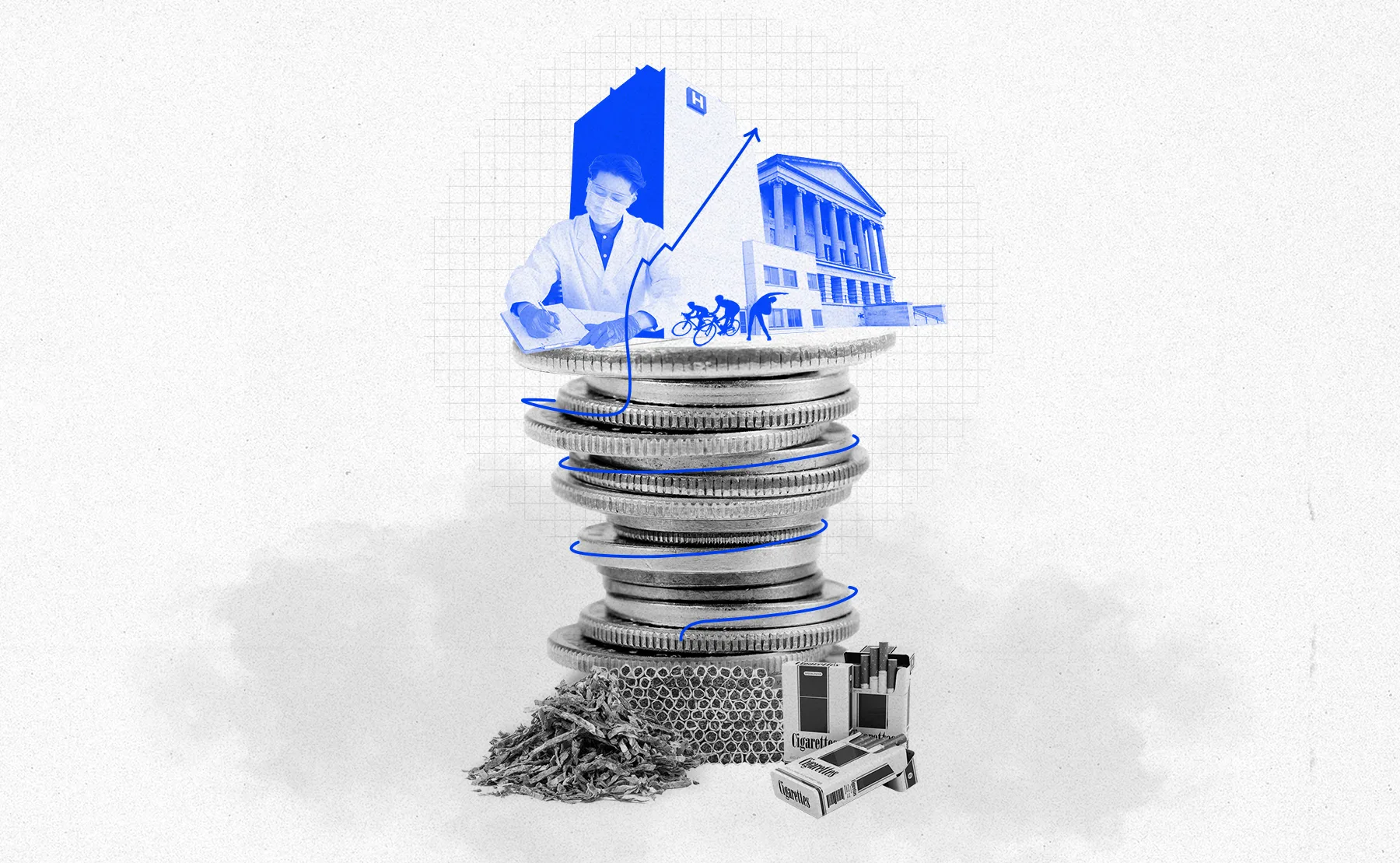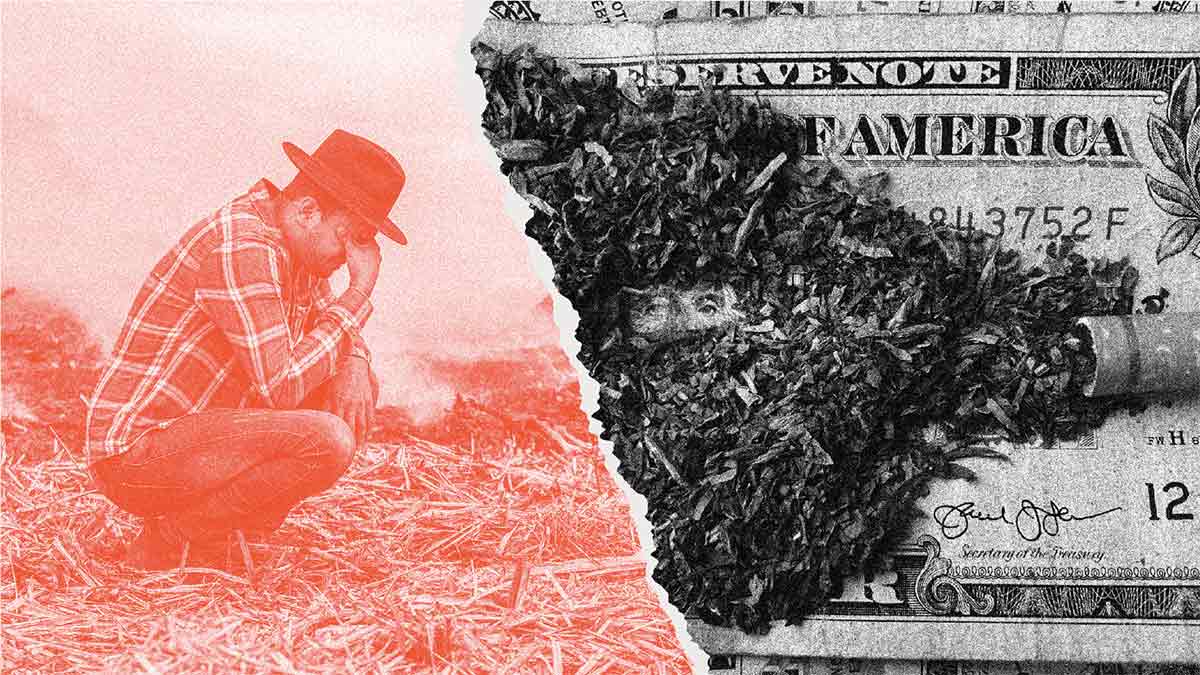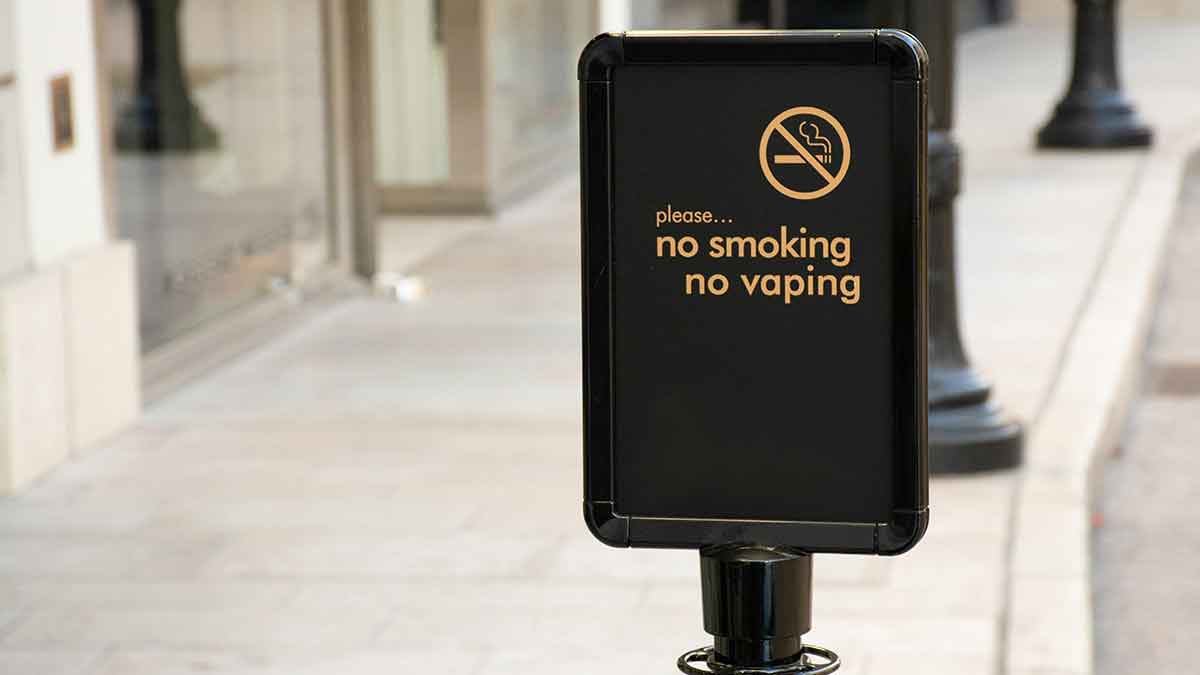- Resources
- News
-
-
Get Email Updates
Sign up for STOP's emails and never miss an update on our latest work and the tobacco industry's activity.
-
Get Funding
Ready to tackle industry interference? You could be eligible for a grant.
-
Share a Tip
Do you have information on tobacco industry misconduct in your country? Let us know.
-
Get Email Updates

Here’s the simple truth: There is no better time to raise tobacco taxes.
Tobacco use has historically imposed enormous health and economic costs on societies. Even pre-pandemic, tobacco was a drain on society, driving up health care costs, harming the well-being and productivity of populations and ultimately killing eight million people every year. Now, several months into the COVID-19 pandemic, tobacco’s devastating impact has only become amplified.
The pandemic has forced governments to seek solutions to two urgent problems: an unprecedented health crisis and growing economic strain. Increasing taxes on tobacco products can help alleviate both.
Tobacco taxes protect health, now and in the future
There’s no question that reducing tobacco use improves the health of societies. Raising tobacco taxes, thereby increasing the price of cigarettes, is one of the most effective ways to reduce the demand for tobacco. In one study, researchers estimated that a 50% increase in cigarette prices across 13 selected countries could lead to 67 million people quitting. Globally, the effect could be even more powerful. The U.S.-based National Cancer Institute estimated that just a 10% price increase could lower tobacco consumption by 5% in low- and middle-income countries and by about 4% in high-income countries. With fewer people using tobacco, governments will see reduced tobacco-related illness going forward, putting them in a better position to face future health and economic challenges.
Tobacco taxes fund government initiatives, in good times and bad
Higher taxes also equate to increased tax revenue for governments, which is especially important now as countries look to fund their COVID-19 recoveries in the face of increasing deficits.
According to the Guidelines for implementing Article 6 of the World Health Organization (WHO) Framework Convention on Tobacco Control (FCTC), governments have the sovereign right to decide how tobacco tax revenues are spent.
Some countries use tobacco taxes to fund non-emergency, but strategically important, health initiatives. In the Philippines, for example, revenues generated by increased tobacco taxes earmarked for health nearly tripled the country’s health budget and helped to fund the country’s national health insurance program, which extended coverage to nearly 10 million more people in just three years. In El Salvador, 35% of the revenue (or a minimum of US $20 million/year) from its taxes on tobacco (along with alcohol and weapons) goes to funding the country’s Health Solidarity Fund, FOSALUD.
Other countries have smartly tapped tobacco taxes to assist in funding disaster recovery—a model that could be followed to help fund COVID-19 recovery plans. After a deadly earthquake in Ecuador in 2016 that destroyed homes, schools and public infrastructure, the government raised funds by instituting the “Organic Law for the Balance of Public Finances,” which increased tobacco taxes from US $.013 to US $0.16 per cigarette.
In 2001, the government of Thailand implemented a 2% surcharge excise tax on tobacco and alcohol, with the additional funds allocated specifically to ThaiHealth. As Professor Prakit Vatheesatogkit of the National Committee for Tobacco Control, Thailand detailed in his Countering Tobacco Industry Interference in the Time of COVID 19 webinar presentation, this translated into $135 million USD in 2019. Professor Vatheesatogkit noted this funding has been critical for strategic communication around the risks of tobacco use and COVID-19.
An important and accessible tool for governments
Raising tobacco taxes is a viable option for virtually any country, but can be an especially accessible tool for the many countries that levy below the WHO-recommended tax of 75% of the retail price of a pack of cigarettes. It’s affordable to implement, too: The annual cost is estimated to be only US $0.005 per person in low- and middle-income countries.
Governments should see their tobacco tax and pricing policies as important levers that can be adjusted to help meet the challenges brought on by COVID-19. Increasing tobacco taxes can help meet governments’ most pressing funding needs, reduce demand for tobacco and improve their populations’ health in the long term. With all of the benefits that come from raising tobacco taxes, there’s no better time than now to do so.
Learn more:
The Union’s Brief on Financing Public Health Preparedness for Pandemics
Guidelines for Implementation of Article 6 of the WHO FCTC
Policy Brief: The Role of the WHO FCTC in COVID-19 Responses


